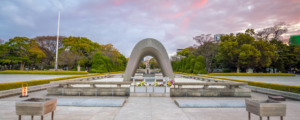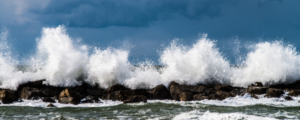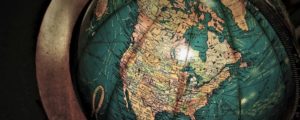My family had been forced
to evacuate our home,
to stay with relatives
in Nishi Magome.
However, this refuge,
this house set amid peaceful fields,
took a direct hit
from an incendiary bomb.
With all our worldly
possessions inside,
it was instantly engulfed in flame.
With our relatives’ consent,
my father constructed a tiny hut
on the same lot,
with a small sheet
of scorched tin for a roof.
We had no mosquito netting,
so now, instead of bombs,
we faced the assault
of squadrons of mosquitoes.
On that day of August 15,
my father, face flushed with emotion,
murmured to himself,
“My sons will now return.
My eldest, Kiichi,
my second, Masuo,
my third, Kaizo,
and my fourth, Kiyonobu,
are coming home.
One from Burma
three from China—
they’re coming home.”
He uttered these words,
breath catching painfully
in his chest,
as one awakening
from a dream.
My diminutive mother
prepared dinner,
excited as a young girl:
“How bright it is!
Now we can keep the lights on!
How lovely and bright!”
That summer,
my father was fifty-seven,
my mother forty-nine,
and I was seventeen.
August 15 was the day,
the moment we emerged from a
deep and hellish gloom,
regaining as a family
some happiness and cheer.
Although some of my siblings
wept at Japan’s defeat,
deep inside everyone was relieved:
How good, they thought,
how good that the war
is over at last.
Eventually
the sad news came—
my eldest brother
was dead,
killed in action in Burma.
While many were discharged
and returned quickly
to their homes,
one year passed,
and then another,
before each of my
three surviving brothers
managed to return home
quietly alive.











